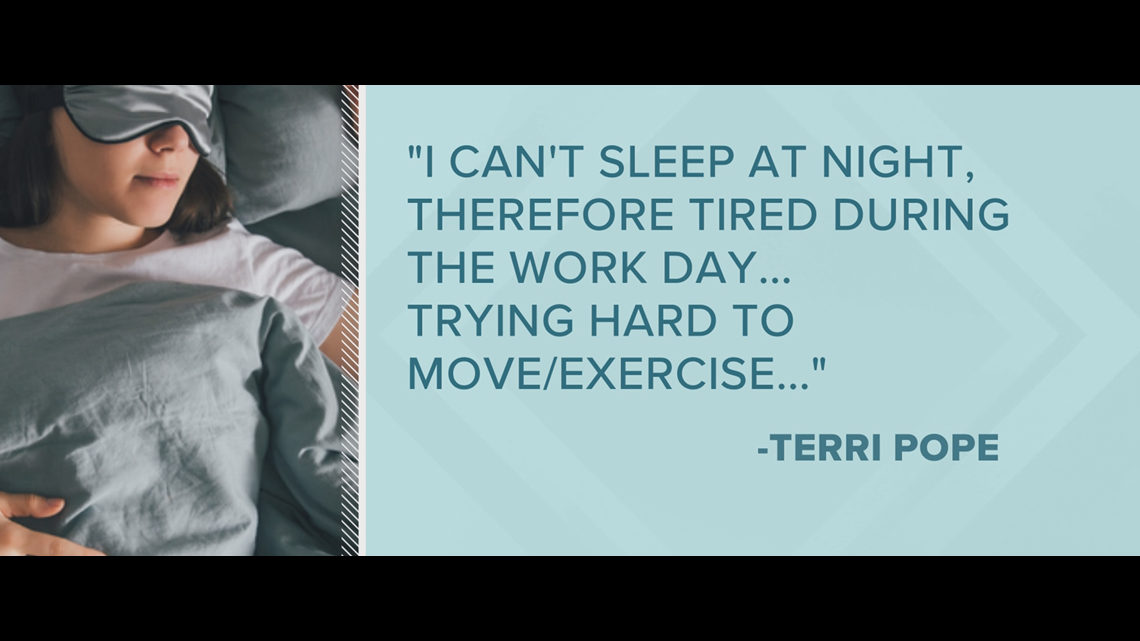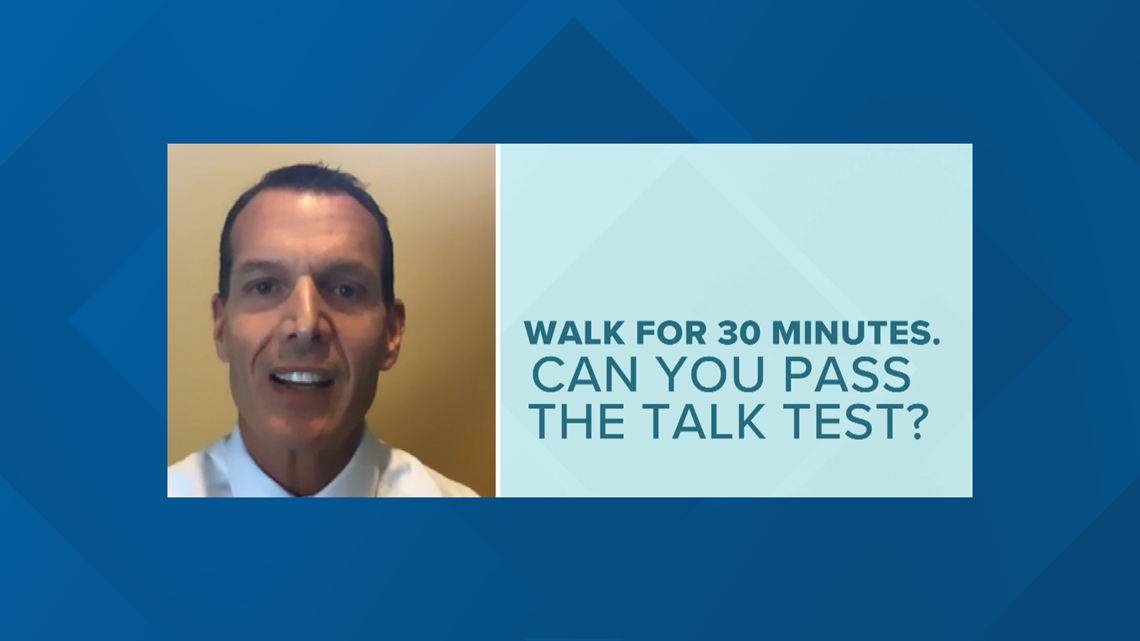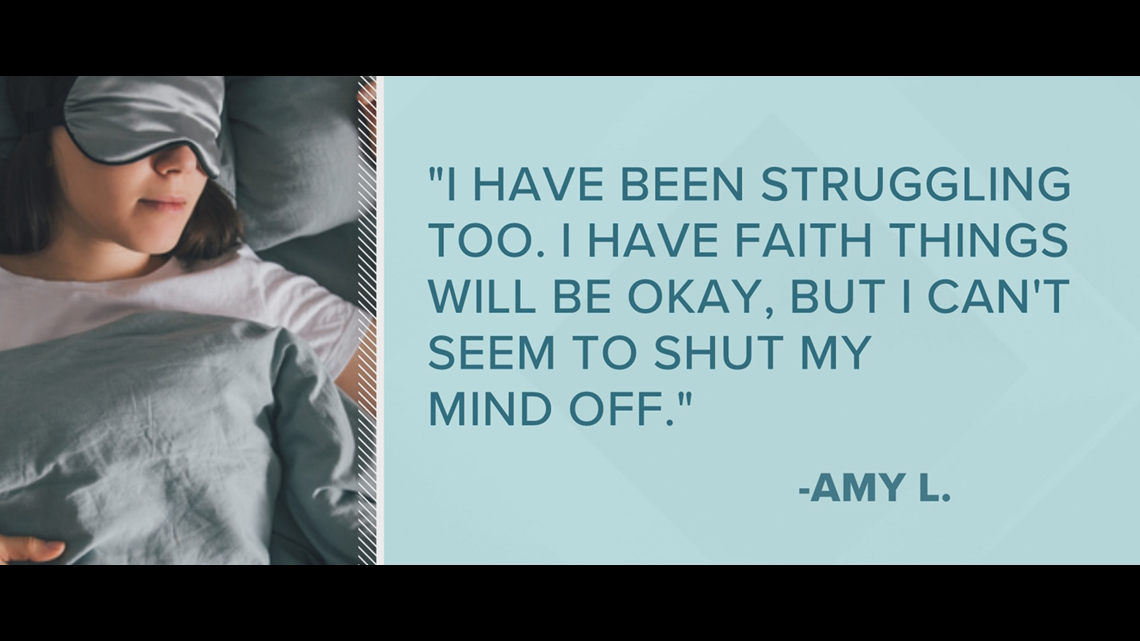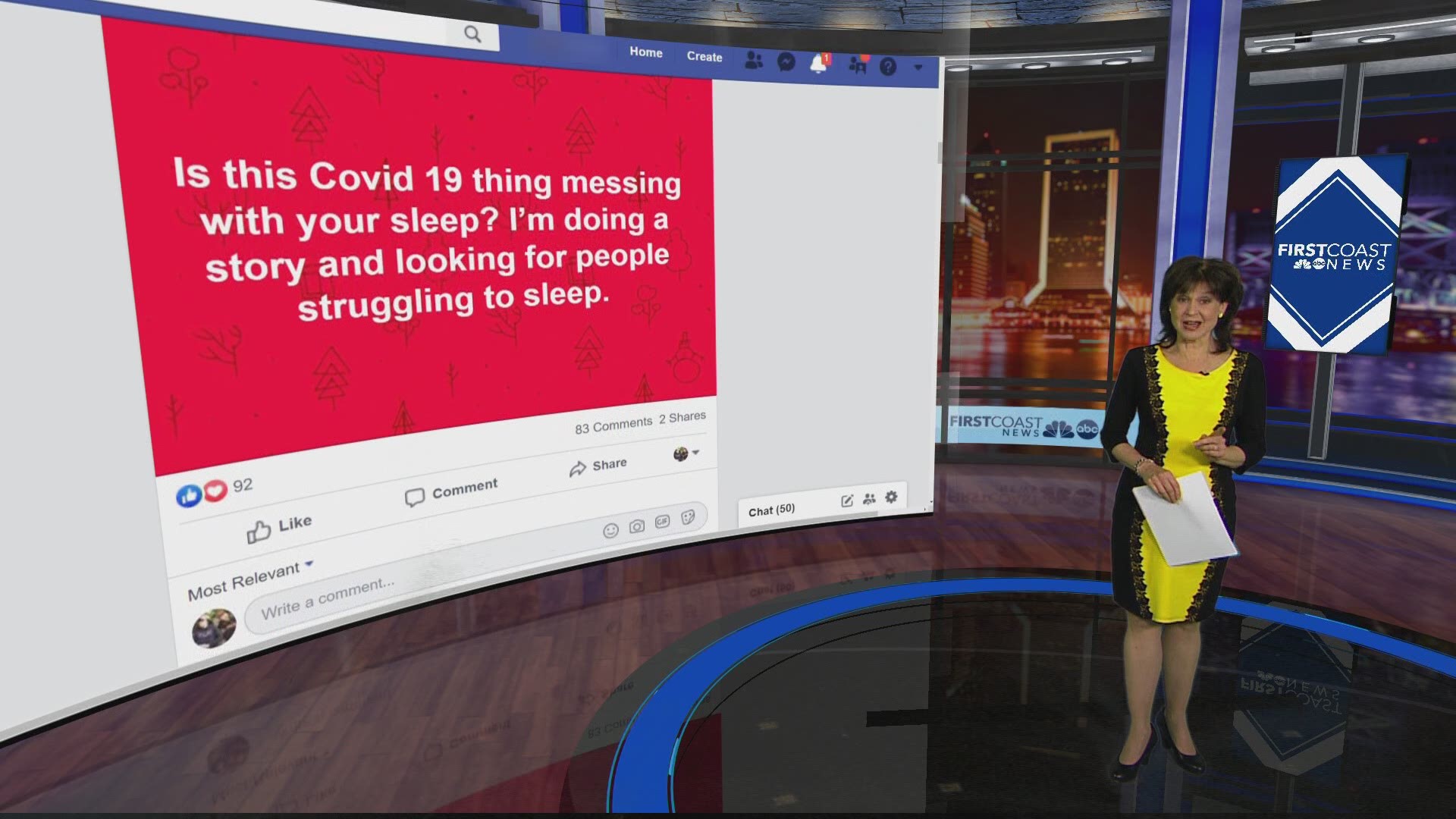Chandra P. says it for a lot of us, "Insomnia BIG time." Thanks to all of you sending us your struggles with sleep on our Facebook page now.
We took your questions to Dr. Peter Nassar, a sleep doctor at the Jacksonville Sleep Center affiliated with Baptist Health.
He says usually about 30% of adults have sleep issues. He believes now -- because of the pandemic -- more than 50% do.
So here are 3 if you can't sleep these days:
#1 Exercise first thing in the morning
Terri Pope says, "I can't sleep at night, therefore tired during the work day...trying hard to move/exercise." Terri says she goes out at lunch for a walk.


Dr. Nassar says, "I love she's trying to find time to exercise. That's great. But maybe move that to first thing in the morning."
Why then?
It's because, Dr. Nassar believes, exercise first thing int he day jump starts your biological clock so you can sleep better at night and fall asleep at the right time.
Dr. Nassar says, "About 16 hours after you wake up in the morning, your biological clock says, 'Hey, it's time to go to sleep.'"


And for exercise? Dr. Nassar says make sure you can pass the 3-word exercise test.Let's say you're walking for exercise. He says, if you can speak in full sentences, you're not doing enough. You should be out of breath enough that you can only speak about three words at time. And he recommends 30 minutes a day, each morning, of exercise.
#2 Avoid blue light


Amy L. wrote in to our Facebook page that she just can't shut off her mind.
Dr. Nassar says, "The reason why we struggle is when we're awake, we're busy, and then when we lie down at night, there's nothing to preoccupy you."
And now, with all the Covid 19 worries, it's worse.
So he says try to read a book or a magazine before you go to bed. But avoid blue light from your phone or TV screen.
"The evidence says blue light like from TV and electronics can decrease the melatonin production, and that's predominantly our sleepy hormone that starts about two hours before bedtime."
#3 If you can't sleep, try stopping any caffeine by noon
Dr. Nassar says people have various responses to caffeine, but keep in mind, "The half-life of caffeine is four hours. That means half of the drug is still in your body. It's like throwing gas on the fire. If you're having trouble sleeping, I'd recommend stopping the caffeine by 12 noon."
For other tips to fight insomnia:
t

